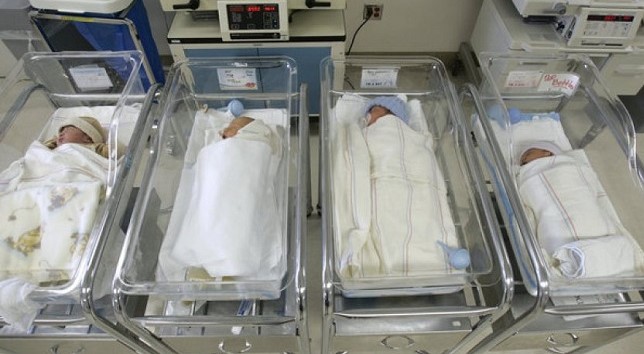A study of 33 pregnant women in China who were infected with the new coronavirus found that three of them gave birth to babies with COVID-19.

All three infants survived after receiving treatment for their symptoms, doctors reported on Thursday, March 26, 2020 in the medical journal JAMA Pediatrics.
One of those infants was delivered by caesarean section nearly nine weeks before its due date because the mother was suffering from pneumonia caused by COVID-19. That baby’s health problems may have been primarily due to being born prematurely, not because it was infected with the coronavirus known as SARS-CoV-2, the authors wrote.
“The clinical symptoms from 33 neonates with or at risk of COVID-19 were mild and outcomes were favorable,” wrote the authors, who were from two children’s hospitals in Wuhan and one in Shanghai.
“Because strict infection control and prevention procedures were implemented during the delivery, it is likely that the sources of SARS-CoV-2 in the neonates … were maternal in origin,” the doctors added. “It is crucial to screen pregnant women and implement strict infection control measures, quarantine of infected mothers, and close monitoring of neonates at risk of COVID-19.”
Two of the infants born with coronavirus infections were delivered at full term, one after 40 weeks’ gestation and the other after 40 weeks and 4 days. Even so, both babies were lethargic and feverish with signs of pneumonia in their lungs, and one of them experienced vomiting.
Both tested positive for SARS-CoV-2 on their second and fourth day of life. By Day 6, those tests came back negative.
The premature infant had a more difficult path to recovery. Born at 31 weeks and 2 days after showing signs of fetal distress, the baby was diagnosed with neonatal respiratory distress syndrome and pneumonia and had to be resuscitated.
Like the other infants, this newborn tested positive for the coronavirus infection on Days 2 and 4 of life, but test results were negative by Day 7.
It took another week for the infant to recover from its respiratory problems, following treatment with antibiotics, caffeine and noninvasive ventilation, according to the report.
During this outbreak, children have appeared to be less severely affected by COVID-19 than older adults, and researchers have struggled to explain why. One hypothesis is that children acquire and share other kinds of coronaviruses – many of which cause only mild, cold-like symptoms – that might offer some kind of protection against SARS-CoV-2.
But newborns have not had this kind of exposure, so that could not explain why the virus cleared so quickly in these three cases, Kimberlin said. Another hypothesis is that a baby’s immune system is too underdeveloped to mount the kind of extreme response that could lead to further complications and even death.
Exactly what forces were at work remain very unclear, particularly with a sample size of just three babies, said Kimberlin, who was not involved in the study.
“I think it adds something,” he said of the newborns’ timely recovery from the virus. “What it adds, I don’t think we really fully can appreciate yet.”
Kimberlin co-wrote an editorial addressing two other papers published Thursday in the Journal of the American Medical Assn. that looked for evidence that COVID-19 could pass from mother to fetus in utero. Those studies were “not conclusive,” he and a colleague wrote.
The study in JAMA Pediatrics made a much stronger case that transmission might be happening around or during the birth process, Kimberlin said — although exactly how that might be happening remains unclear.
For now, this study serves as a sort of proof of principle that COVID-19 transmission is possible, but not whether it’s likely, he added.
By Amina Khan and Karen Kaplan, Los Angeles Times
